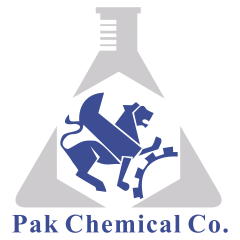Epoxidized Soybean Oil is a modified form of soybean oil that has undergone a chemical process known as epoxidation. It is a vegetable and oil-based compound and widely used as a plasticizer in different industries.
What is Epoxidation? it is a method where soybean oil is treated with a peroxide compound, leading to the creation of epoxy groups in the oil molecules. These epoxy groups give ESBO its special specific qualities and uses.

ESBO is a plasticizer. and works like a substance that makes materials more flexible, easier to shape, and stronger. It reduces the glass transition temperature of the material, making it more pliable and easier to process. ESBO is useful in many situations where we want the materials to be easier to bend and flex.
One of the notable characteristics of ESBO is its non-toxic. is safe for people and the environment. Unlike some other plasticizers, ESBO does not contain harmful phthalates.
It is made from plants and can be easily found. and it is a good choice for certain applications.
ESBO finds wide application in industries such as food packaging, medical devices, toys, flooring materials, wire and cable insulation, adhesives, and coatings.
Plasticizer like soybean oil in PVC (Polyvinyl Chloride) formulations, can improving the processability and performance of PVC-based products.
Key Aspects of Epoxidized Soybean Oil (ESBO)
Plasticizing Effect: ESBO makes materials more smooth and smooth pliable, easier to shape, and longer lasting. It lowers the temperature at which they become bendy, making them easier to shape and work with.
Non- Toxic and Environmentally Friendly: ESBO is safe. ESBO is safe to use because it doesn’t have any harmful substances and it comes from a renewable source (soybean oil).considered environmentally friendly and biodegradable.
Thermal Stability: can handle high temperatures without getting damaged. which makes it useful for things that need to resist heat.
Compatibility: it is compatible with a range of polymers. Due to including PVC (Polyvinyl Chloride), polyethylene, polypropylene, polystyrene, and rubber. It improves processability and mechanical properties.
Regulatory Compliance: ESBO is subject to regulations imposed by authorities to ensure its safety for specific applications, such as the FDA and ECHA.
Cost-Effective: affordable compared to other similar substances. because it is easily available as a left over from making soybean oil.
When using ESBO, it’s important to check if it works well with the materials you are using. and be careful about any possible extraction issues, and consider how it might affect the color and see-through quality of the final product. Properly testing and evaluating ESBO is necessary to ensure its optimal use as a plasticizer.
Applications of ESBO
Epoxidized soybean oil (ESBO) finds application in various industries due to its plasticizing properties and environmental advantages. Here are some common applications of ESBO:
PVC Stabilizer and Plasticizer: Widely used as a primary or secondary plasticizer in the production of Polyvinyl Chloride (PVC) products. It improves the flexibility, elongation, and impact resistance of PVC while providing heat and light stability. used in PVC applications such as wire and cable insulation, vinyl flooring, synthetic leather, and PVC films.

Food Packaging: Used in food packaging applications as a plasticizer for materials like Polyvinylidene Chloride (PVDC). It helps the improve of flexibility and heat sealability of packaging films, making them suitable for applications such as food wrapping, pouches, and containers.
Adhesives and Sealants: utilized as a plasticizer in the production of adhesives and sealants. It improves the flexibility, adhesion, and resistance properties of these materials. ESBO-based adhesives are commonly used in industries such as construction, automotive, and packaging.
Coatings and Paints: added to Coatings and paints to make them work better. It helps them form a smooth layer, stick well, be more flexible, and resist damage from chemicals and weather.Industries such as automotive, construction, and general manufacturing utilize coatings containing ESBO.
Rubber Products:added to rubber materials to make them better. It helps them be easier to work with and improves their properties like flexibility, stretchiness, and resistance to heat and aging. commonly used in making rubber hoses, seals, gaskets, and parts for cars.
Textile and Leather Processing: added to textiles and leather during processing to make them more comfortable. It makes fabrics softer, and improves how they feel. ESBO-based products find application in dyeing and finishing textiles, treating leather, and manufacturing synthetic leather.
It is important to consider that the formulation and concentration of ESBO can vary depending on the desired goals and regulatory requirements. It’s crucial to test it properly, make sure it meets the required standards, and check if it works well for the specific needs in different industries.

